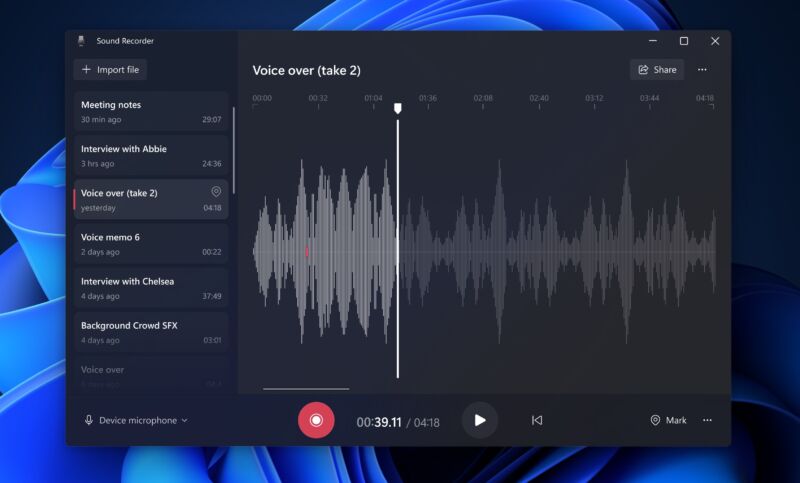
Windows' Sound Recorder app has gone through a few iterations since its initial release in Windows 3.0 back in 1990, when it launched as a simple app that could only record 60 seconds of audio at a time. But the app vanished altogether in Windows 10, replaced by a totally new app called Voice Recorder, which can record and trim basic sound recordings and save them as m4a files.
Sound Recorder is now making a comeback, and Microsoft is currently testing a revamped version for Windows Insiders in the Dev channel. The company announced the redesign in a blog post summarizing Windows 11's updates to built-in Windows apps.
The new Sound Recorder uses a two-column layout similar to Voice Recorder's, with playback and trimming controls to the right and a list of all the files you've recorded on the left. But it adds some old Sound Recorder features that disappeared from the app years ago, when it was boiled down to almost nothing in Windows Vista.
The app has a waveform visualizer that appears during recording and playback, and you can once again choose to save or open files in multiple formats (including the default m4a, as well as mp3, wma, FLAC, and WAV). The new Sound Recorder can also adjust audio playback speed from 0.25x to 4 and set markers so you can easily jump from place to place within a large audio recording.
This isn't the first time Windows 11 has revived the name of an old Windows app while keeping the user interface and features from a newer Windows 10-era app. The new Windows Media Player has a lot more in common with the Groove Music app than with the Windows 7 Media Player, and Windows 11's Snipping Tool is a relabeled version of what Windows 10 called Snip & Sketch.
Windows 11 has also updated a bunch of built-in Windows apps that haven't gotten attention since the Windows 7 days or even earlier, including Paint and Notepad.
Listing image by Andrew Cunningham
reader comments
97 with